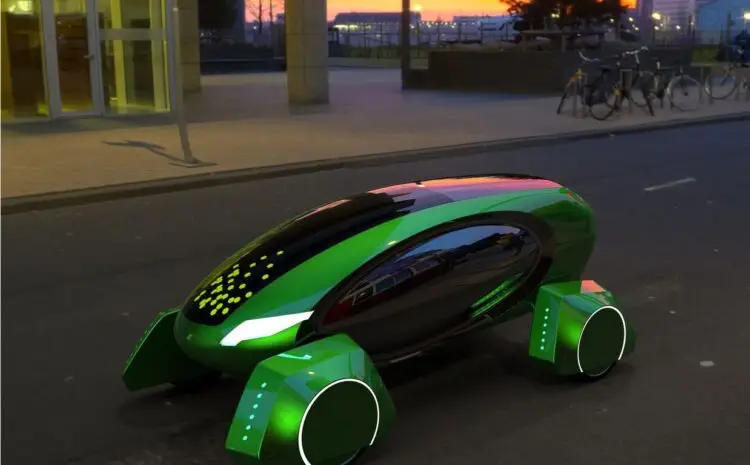Who will drive the cars of the future?

When self-driving cars arrive on our roads, and they soon will, it will be hard to deny that we’re living in a technological future.
Driverless cars already exist in some forms, but they will hit the market in the early 2020s, and emerge with increasingly advanced capabilities over the coming decades.
Very soon, we’ll be able to prepare for a business meeting during a London commute, read a novel on-the-road to a family gathering in Norfolk, or just kick-back while you enjoy the sights during your own private tour of the Scottish Highlands.
Motorists will never have to take the wheel again – unless they choose to – with future driving tests, insurance and the likes reflecting the extent of automation of the vehicle you wish to drive, rather than the type of vehicle itself.
AI-operated vehicles can “travel safely closer together, and with less braking and accelerating than human drivers” – something that’ll lead to less congestion, a greater capacity for roads, and greater overall efficiency, according to a Guardian interview with Stan Boland, CEO of FiveAI, which develops driverless car software.
An increasing proportion of car owners want driverless and electric cars, yet half of today’s owners do not want to own a vehicle in the future, according to a KPMG survey of car manufacturing bosses.
Imagine how driverless cars might fit into our lives, and the reason for this becomes clear.
If you need a car for your commute, totaling a few hours each day, plus the occasional weekend trip away – owning a car and storing it 24/7, with all the related responsibilities such as an MOT, insurance, road tax, upkeep etc. makes little sense.
For example, a car drives a commuter to work for an early shift, then heads to your home to pick you up. Having dropped you off at your workplace, it moves along to the nearest person in need of a vehicle, and so on.
All these logistics, and the driving itself, would be AI-operated. And you wouldn’t need to own the car at all.
Driverless vehicles, and smart devices in general, will benefit from 5G mobile technology, feeding data into the Internet of Things (IoT) allowing devices to communicate and act in unison.
Autonomous vehicles for instance, will be able to communicate with one another, and other road users.
The same communication will also be used in driverless delivery vehicles. And with giants like Google, Tesla and Uber counted among the early adopters of self-driving cars, you can bet that the overwhelming majority of future vehicles, whether transporting people or packages, will be driverless.
Mole Solutions is ignoring both road and air, opting instead for below-ground freight capsules. Thrown into the delivery mix, this could help to reduce road (and air) traffic congestion, as well as keeping out of sight.
Pelipod is seeking to cater specifically to businesses that need efficient, secure and direct delivery. Bypassing post offices, courier firms and depots, the firm is pioneering delivery pods that will travel straight to the destination. Integrated electronic systems will grant access only to authorised users, and provide proof of delivery.
And Kar-Go, the driverless delivery vehicle from my own Academy of Robotics, will autonomously navigate unmarked roads such as residential areas, and use an intelligent package management system to deliver packages to retail customers, day or night.
You don’t need to be a futurist to predict that when technology allows for human labour to be replicated in a cheaper and more efficient way, companies will adopt this new system as fast as, well, humanly possible.
Looking beyond the first incarnations of autonomous vehicles and towards the far-future of delivery, the process will eventually become digital. It’s not unrealistic to imagine that your latest iPhone could one day not be physically sent to you at all.
Rather, it could be purchased via a digital download and, through some 3D printer/fax machine-hybrid, be re-assembled in your living room.
Of course, we can’t expect to see such an invention anytime soon. Technological advancements – despite accelerations in the digital age – are gradual. In the meantime, though, our lives will be transformed by autonomous delivery vehicles, and indeed driverless vehicles in general.
So while we can’t expect to be able to fax ourselves to the Bahamas on our lunch break, we could certainly enjoy a Pina Colada on a driverless journey to the airport.
About the Author
William Sachiti is the founder of robotics technologies start-up, the Academy of Robotics.
He was the founder of Clever Bins – outdoor bins displaying solar-powered digital advertising – which featured on the BBC’s Dragon’s Den. More recently, Sachiti became the founder of digital concierge service, MyCityVenue, which gained 1.6 million users before being sold to SecretEscapes.
He formed Kar-Go in 2016 and is now preparing to unveil his company’s autonomous delivery vehicle, with plans to put fully-fledged driverless cars onto the world’s public roads.
Facebook | https://www.facebook.com/wemakeai/
Twitter | https://twitter.com/WeMakeAI
Instagram | https://www.instagram.com/instituteofrobotics/
About The Academy of Robotics
Academy of Robotics is a UK start-up specialising in creating ground-breaking robotics technologies such as autonomous vehicles. Their first commercial solution, Kar-Go, is an autonomous delivery vehicle that will vastly reduce the last-mile costs associated with deliveries.
The Academy is based at the University of Aberystwyth, allowing it to leverage resources such as labs and equipment in order to keeps costs low. So far, the Academy has a working prototype robot which can drive itself on unmarked roads and pavements between any two locations, and is simultaneously working with UK car manufacturer Pilgrim to create street legal versions.




